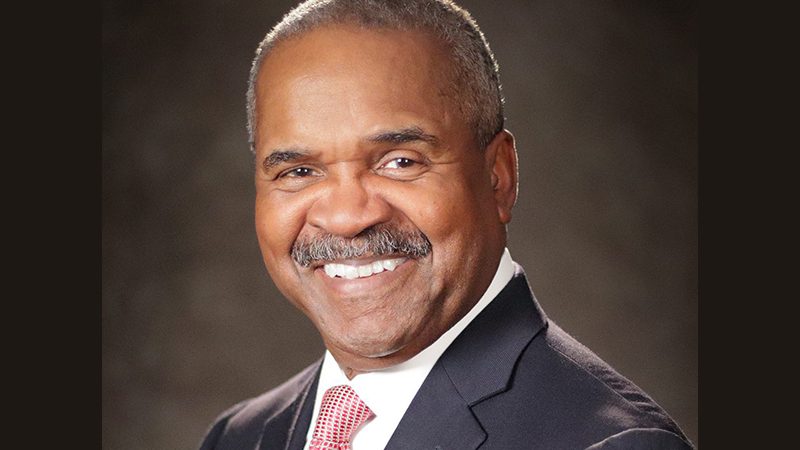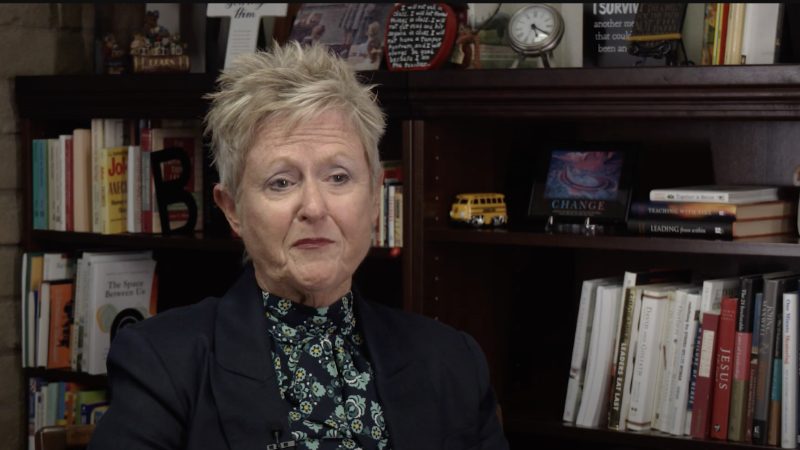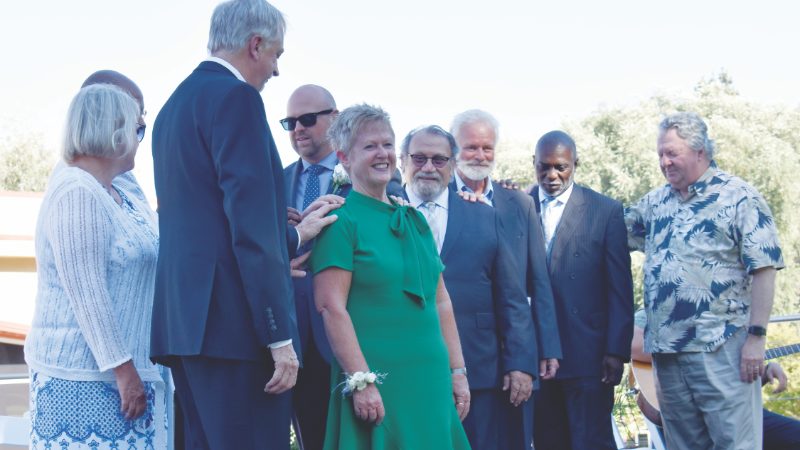The blessing of Christian stewardship lies not only in the act of giving but also in what it encourages us to give. Christian stewardship means to look beyond our own needs and consider how our wealth can be used to further God’s kingdom. Not only does this provide a greater sense of purpose, it also helps open up conversations about issues like poverty, inequality, and injustice—all topics that can be intimidating or uncomfortable for some people. The Bible teaches us that everything is a gift from God, so when we are generous with the resources with which He has blessed us (treasures, time, and talents), we can use them to further His kingdom. This means using our financial gifts to support missions and ministries, volunteering our skills and abilities in service of others, or simply offering up a few hours of our week to help those in need. No matter what form it takes, Christian giving should always be done with an open heart and mind—for when we give freely out of love for God and His people, the blessings will follow for both the giver and the receiver. The series of five articles on stewardship beginning on p. 8 was written by Charles Mills—a frequent contributor located in West Virginia—based on material provided by the Recorder staff.
THE WIDOW'S MITE I Havenlight Publishing by James Christensen
You look in the mirror and wonder. Who am I? Why am I here? What am I supposed to do? Such philosophical questions have challenged members of the human race since Eden. How we answer those questions offers many practical implications for our daily lives.
The Gospel of Luke reveals the story of someone who was definitely identity-challenged. “When Jesus stepped ashore, he was met by a demon-possessed man from the town. For a long time this man had not worn clothes or lived in a house, but had lived in the tombs.... Jesus asked him, ‘What is your name?’ ‘Legion,’ he replied, because many demons had gone into him” (Luke 8:27, 30).1 Internal voices often guide external actions.
Paul suggests a root cause for problems with identity. “For since the creation of the world God’s invisible qualities—his eternal power and divine nature—have been clearly seen, being understood from what has been made, so that people are without excuse” (Romans 1:20). Then he adds: “They exchanged the truth about God for a lie, and worshiped and served created things rather than the Creator—who is forever praised” (Romans 1:25). The denial of the identity of God can lead to a severe identity crisis within the human mind.
The God/man connection
If we want to move out of our own identity crisis, we need to rediscover who God actually is. The account of creation reveals five basic affiliations between God and humanity:
- God is the CREATOR of humanity (Genesis 1:27). He literally formed us from mud and bone.
- He’s the MODEL for humanity (Genesis 1:27). We were created in His image.
- He’s the PROVIDER for humanity (Genesis 1:29). He designed and built our first home and organized the preferred menu for our meals.
- He’s the MASTER of humanity (Genesis 1:28). He instructed Adam and Eve to make more people and tenderly care for every living thing.
- He’s the COMPANION for humanity (Genesis 2:1-3). He set aside one day a week for fellowship and contemplation of His love.
Humans are created for connection and affiliation. Loneliness and solitude were not part of the master plan. We are all God’s creatures designed to be dependent on Him, to represent Him to others, to be inclusive socially, and to serve the needs of others. That’s who we are. That’s who we were designed to be. When we choose to live in sync with our core elements, God is pleased and so are we. Live out of sync, and we look in the mirror and wonder.
Hope restored
So, if we’ve lost our connection with whom God created us to be, is there hope? Oh yes! But it may take a little work.
What were some of the results of the demon-possessed man’s encounter with Jesus? In Luke 8:35 we find him sitting “at Jesus’ feet.” This action was a sign of acknowledging the sovereignty of Christ. For years the possessed man had wandered around without clothes. But verse 35 presents the transformed man as one who is dressed. He now depends upon Jesus to address both his mental and physical needs.
The demon-possessed man was always in solitary places and in the tombs, hiding to prevent any interaction. Now, his social ability and desires were restored.
Many had tried to control him, to give him orders and instructions, all to no avail. But now, when he received an order—a mission—from Jesus, he complied without resistance: “‘Return home and tell how much God has done for you.’ So the man went away and told…how much Jesus had done for him” (Luke 8:39). In this action, he demonstrated a servant’s attitude.
Jesus could not stay in that area. He was forced to leave. But guess who remained behind and became His representative. “Though the Saviour Himself departed, the men whom He had healed remained as witnesses to His power.… When Jesus returned to Decapolis, the people flocked about Him, and for three days, not merely the inhabitants of one town, but thousands from all the surrounding region, heard the message of salvation” (Ellen G. White, The Desire of Ages, p. 340).
If for some reason we’ve drifted away from our original God-created identity, our connection with Him and who we’re designed to be can be re-established. “And souls that have been degraded into instruments of Satan are still through the power of Christ transformed into messengers of righteousness” (Ellen G. White, The Desire of Ages, p. 341).
_____________________________
1. Unless otherwise indicated, all Scripture quotations are from the New International Version.
We are all God’s creatures designed to be dependent on Him, to represent Him to others, to be inclusive socially, and to serve the needs of others.
SERIE SOBRE MAYORDOMÍA parte 1: ¿Quién soy?
La bendición de la mayordomía cristiana radica no sólo en el acto de dar, sino también en lo que nos motiva a dar. La mayordomía cristiana significa ver más allá de nuestras necesidades y considerar cómo nuestras bendiciones pueden ser utilizada para promover el reino de Dios. Eso no solo nos proporciona un mayor sentido de propósito, sino que también nos ayuda a abordar temas como la pobreza, la desigualdad y la injusticia, que pueden ser intimidantes o incómodos para algunas personas. La Biblia nos enseña que todo es un don de Dios, así que cuando somos generosos con los recursos con los que él nos ha bendecido (tesoros, tiempo y talentos), podemos usarlos para promover su reino. Eso significa usar nuestras aportaciones financieras para apoyar misiones y ministerios, ofrecer voluntariamente nuestras habilidades y destrezas al servicio de los demás, o simplemente ofrecer unas horas a la semana para ayudar a los necesitados. No importa qué formas tomen, las ofrendas cristiana siempre deben hacerse con un corazón y una mente abiertos, porque cuando damos libremente por amor a Dios y a su pueblo, las bendiciones impactan tanto al dador como al receptor. La serie de cinco artículos sobre mayordomía que comienza en la página 8 fue escrita por Charles Mills, un colaborador frecuente ubicado en West Virginia, basado en material proporcionado por el personal del Recorder.
THE WIDOW'S MITE I Havenlight Publishing POR James Christensen
Te miras en el espejo y te preguntas: ¿Quién soy? ¿Por qué estoy aquí? ¿Qué se supone que debo hacer? Tales preguntas filosóficas han desafiado a los miembros de la raza humana desde el Edén. La forma como respondemos a esas preguntas ofrece muchas implicaciones prácticas para nuestra vida diaria.
El evangelio de Lucas revela la historia de alguien que definitivamente fue desafiado por su identidad. «Al desembarcar Jesús, un endemoniado que venía del pueblo le salió al encuentro. Hacía mucho tiempo que este hombre no se vestía; tampoco vivía en una casa, sino en los sepulcros.... “¿Cómo te llamas?” le preguntó Jesús. “Legión”, respondió, ya que habían entrado en él muchos demonios» (Lucas 8:27, 30).1 Las voces internas a menudo guían las acciones externas.
Pablo sugiere una raíz para los problemas con la identidad. «Porque desde la creación del mundo las cualidades invisibles de Dios, es decir, su eterno poder y su naturaleza divina, se perciben claramente a través de lo que él creó, de modo que nadie tiene excusa» (Romanos 1:20). Después agrega: «Cambiaron la verdad de Dios por la mentira, adorando y sirviendo a los seres creados antes que al Creador, quien es bendito por siempre» (Romanos 1:25). La negación de la identidad de Dios puede conducir a una grave crisis de identidad en la mente humana.
La conexión Dios/hombre
Si queremos salir de nuestra crisis de identidad necesitamos redescubrir quién es Dios en realidad. El relato de la creación revela cinco afiliaciones básicas entre Dios y la humanidad:
- Dios es el CREADOR de la humanidad (Génesis 1:27). Él literalmente nos formó de barro y hueso.
- Él es el MODELO para la humanidad (Génesis 1:27). Fuimos creados a su imagen.
- Él es el PROVEEDOR para la humanidad (Génesis 1:29). Él diseñó y construyó nuestro primer hogar y organizó el menú ideal para nuestra comida.
- Él es el MAESTRO de la humanidad (Génesis 1:28). Él instruyó a Adán y Eva a hacer más personas y cuidar tiernamente de cada ser viviente.
- Él es el COMPAÑERO de la humanidad (Génesis 2:1-3). Apartó un día a la semana para el compañerismo y la contemplación de su amor.
Los seres humanos son creados para la conexión y la afiliación. La soledad y la desamparo no eran parte del plan maestro. Todos somos criaturas de Dios diseñadas para depender de él, para representarlo ante los demás, para ser socialmente inclusivos y para atender a las necesidades de los demás. Eso es lo que somos. Eso es lo que fuimos diseñados a ser. Cuando elegimos vivir en sincronía con nuestros elementos centrales, Dios se complace y nosotros también. Pero cuando vivimos fuera de sincronía, nos miramos en el espejo y nos sentimos anonadados.
Esperanza restaurada
Entonces, si hemos perdido nuestra conexión con quien Dios nos creó a ser, ¿hay todavía esperanza? ¡Claro que sí! Pero puede requerir un poco de trabajo.
¿Cuáles fueron algunos de los resultados del encuentro del endemoniado con Jesús? En Lucas 8:35 lo encontramos sentado «a los pies de Jesús». Esa acción fue una señal de reconocimiento de la soberanía de Cristo. Durante años, el endemoniado había vagado sin ropa. Pero el versículo 35 presenta al hombre transformado como uno que está vestido. Depende ahora de Jesús para abordar sus necesidades mentales y físicas.
El endemoniado siempre estaba en lugares solitarios y entre las tumbas, escondiéndose para evitar tener cualquier interacción. Su habilidad social y sus deseos estaban ahora restaurados.
Muchos habían tratado de controlarlo, de darle órdenes e instrucciones, pero era en vano. Ahora, cuando recibió una orden, una misión, de Jesús, cumplió sin oponerse: «”Vuelve a tu casa y cuenta todo lo que Dios ha hecho por ti”. Así que el hombre se fue y proclamó por todo el pueblo lo mucho que Jesús había hecho por él» (Lucas 8:39). Con esa acción, demostró la actitud de un siervo.
Jesús no podía quedarse en esa área. Se vio obligado a irse. Pero ¿adivina quién se quedó atrás y se convirtió en su representante? «Aunque el Salvador mismo partió, los hombres a quienes había sanado permanecieron como testigos de su poder... Cuando Jesús regresó a Decápolis, la gente se congregaba a su alrededor y, durante tres días, no sólo los habitantes de una ciudad, sino miles de toda la región circundante, escucharon el mensaje de salvación» (El deseado de todas las gentes, p. 307).
Si por alguna razón nos hemos alejado de nuestra identidad original creada por Dios, nuestra conexión con él y para lo que fuimos diseñados a ser puede restablecerse. «Y las almas que han sido degradadas en instrumentos de Satanás todavía están a través del poder de Cristo siendo transformadas en mensajeros de justicia» (El deseado de todas las gentes, p. 309).
_____________________________
1 A menos que se indique lo contrario, todas las citas de las Escrituras son de la Nueva Versión Internacional.
Todos somos criaturas de Dios diseñadas para depender de él, para representarlo ante los demás, para ser socialmente inclusivos y para atender a las necesidades de los demás.






